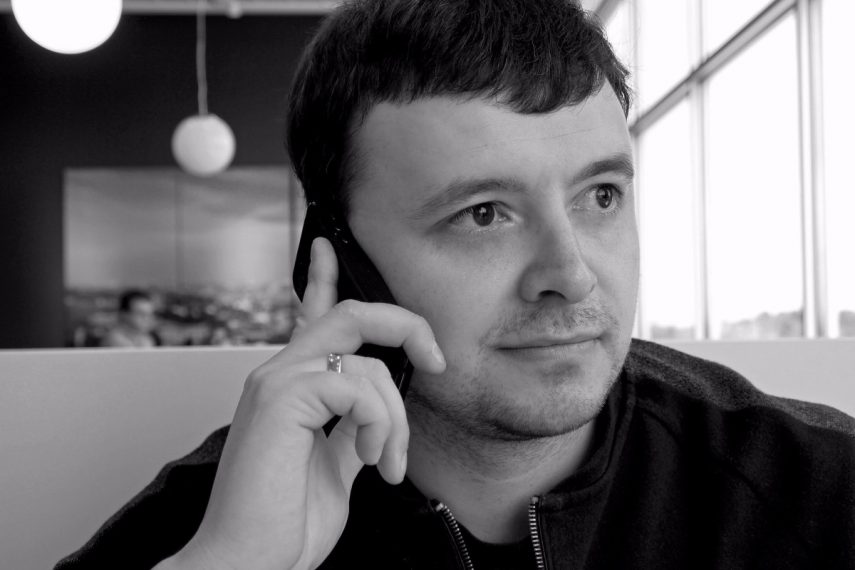Finally, after way too many relationship heartaches, I got the right kind of help that put a name to it . . . who'd guess it was abandonment issues.
Abandonment issues ruining your relationship?

Dr. Susan "Shrinklady" LaCombe
Hello, I'm Dr. Susan LaCombe Publisher of myShrink.com.
I've personally experienced the impact of abandonment issues firsthand.
I have to admit though, it took some time before I could name the problem as "abandonment".
Do you have abandonment issues?
I came to see that unresolved abandonment issues were holding me back. Anything to do with 'letting go' seemed to trigger me.
Like even for inconsequential things . . .
Who would think . . . struggling to let go of clutter was rooted in abandonment fears!
That, as it turned out, was the smallest of my concerns...
As I later learned, if you were abandoned physically or emotionally, your ability to feel secure in the world - to feel you do belong - is going to be hard won.
You may find yourself avoiding commitment or intimacy . . . indeed this may go on for a very long time that you feel it's normal - even under the guise "Oh, I'm just the independent type".
Your fears may also reveal themselves in a greater dependence inside relationships (feeling needy and clingy) and an over-independence outside relationships ("I'm better on my own" kind of thinking).
You can have trouble letting go of relationships that don't work and/or holding onto ones that work really well. (Unfortunately, in the latter case, regret often shows up only months later.)
Indeed, if you have a hard time just being connected to your true self, abandonment issues may be at the source of your troubles. As you begin to heal, the grieving you move through is related to this loss of self.
Abandonment issues even show up in the workplace . . . holding onto a job because you don't want to hurt your boss or not being able to let go of an employee who's unsuitable for the job.
The emotional fallout can undermine relationships with a partner, family, friends - your kids - and even people who work for you.
Yes, I've seen it all . . . and not just as a therapist 😉
Counseling helps to define the problem
I invite you to present your particular abandonment issues to a professional counselor. Apart from the enormous relief of finally just unburdening yourself, you can also take advantage of his or her years of experience with hundreds of clients.
Get clear about what's really going on inside you (or with someone you care about). Once you understand the breadth of the problem it's easier to take steps to address.
From my personal experience, once I understood where my abandonment issues were showing up, my life and my actions made more sense to me.
I knew for example, why even though I desperately wanted close relationships, I'd sabotage my efforts to have them.
Online therapy has some advantages over
'face-to-face'
Deciding between face-to-face or online work is a hard call and it really depends on your needs. One very important consideration is that face-to-face might be easier if technology is a challenge (Tho since COVID many people have jumped that hurdle).
As well, you may find that the feeling of a 'human connection' feels more palpable in a therapist's office. And if that's what you feel you need, go for that.
On the other hand, if you think emotional safety might be more easily obtained from the warmth and familiarity of your own home space, I'd suggest starting with online work. (You can at any time switch to a face-to-face counselor if the time feels right for you.)
Other advantages to online therapy . . .
Unlike face-to-face therapy, with online counseling there's not the typical scheduling hassles of finding time during a busy day or fighting crowds to get to an office. You're also not restricted to meeting exactly 50 minutes with your therapist (the usual time for traditional face-to-face therapy).
And if you're using email or chat online counseling (phone and video counseling is also available), you have a record of your conversation to review for later. That's a tremendous resource when you're trying to sort out complicated relationships issues.
You can even start right now.
I hope to hear that you're feeling better soon!
Best of luck,
Tips for working on abandonment issues
As I mentioned above, abandonment issues can show up in many areas of your life and your therapy is not immune to this.
How does abandonment show up in your therapy?
Even small things reveal themselves as an abandonment issue. For example, let's say you've scheduled a phone session with your counselor. You may also be aware that saying 'good-bye' has always been hard. Chances are the ending of your session may trigger unsettled feelings.
That's okay. Working with feelings - as they happen in the moment - are the fastest way of changing them (based on neuroscience).
Be sure to mention this to your therapist if that's the case. You may find for instance that you need a good ten to fifteen minutes warning that the session is ending.
Abandonment issues and feelings towards your therapist
It's not unusual to develop strong feelings towards your therapist. You want this to happen if you want to work through your abandonment fears.
That way, as you find your therapist available - as often as you need to - it will help to heal your old wounds.
How does abandonment healing happen?
When we become close with someone, the feelings that arise trigger our past memories of closeness with others - particularly with our parents. You cannot prevent this process - the way the brain is organized makes it inevitable.
That's okay - you can make it work for you in your favour.
You see, this time around you're having a positive experience. It's this new experience that'll re-shape memories from the past in your mind (ie. the person you're feeling close to - your therapist - is available much more readily than your Mom or Dad might have been).
Basically, this new and positive experience will override the old memories of abandonment and change how you are in your relationships - and for the better!
Not sure how to start?
If you think you might get stumped when you first start your session, it's useful to reflect a little ahead of time about your situation.
For instance, you might consider the symptoms that are most bothersome to you that you want changed. That could easily give you a starting point.
Just know, your therapist will help draw you out in any case. They understand that clients often know something is wrong - they just can't put the right words to it.
Related Topics
Online Crisis Counselling
Checking out in your session
Not all therapists are alike
Is online therapy safe?
Live online counselling
Insider secrets from a non-therapist
Trusting your therapist

